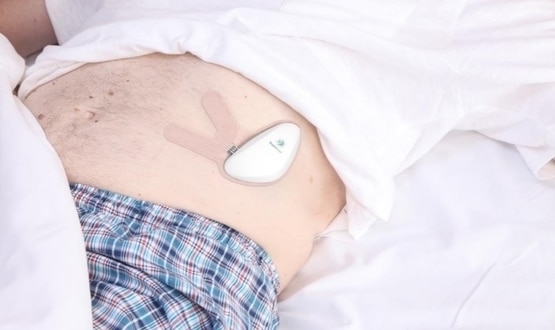NHS England backs 11 new innovative technologies

A device which spots early signs of Sepsis is among the 11 new innovations NHS England is promoting.
The projects are being backed as part of the NHS Innovation Accelerator (NIA) programme which is designed to encourage innovative technologies in the NHS.
One of them is RespiraSense, a wireless device which measures breathing and abdomen movements to help detect early signs of sepsis, pneumonia and cardiac arrest.
Another is home monitoring of hypertension in pregnancies (HaMpton) which allows pregnant women who are at high risk of pre-eclampsia to input blood pressure readings and urine test results into an app.
The app then links up to the patient’s hospital computer system where the data can be monitored by clinicians in real-time.
Another app featured in the group of 11 is WaitLess which shows patients with minor injuries where they can get access to the quickest treatment.
The technology features real-time waiting times, traffic and travel information.
Simon Stevens, NHS England chief executive, said the innovations featured on the list will ‘directly benefit’ patients as they will shift how care is delivered.
“More tests and patient monitoring will be done at home or on the move, without the need to pitch up to a doctors appointment or hospital outpatients,” Stevens said.
The NIA programme is run in partnership with the 15 NHS Academic Health Science Networks (AHSN).
The network, which features Imperial College Health Partners and the North East and Cumbria Academic Health Network, will promote the adoption of these technologies across their individual areas.
The first two rounds of the programme has seen 37 maternity trusts using new-generation episiotomy scissors that are designed to reduce the risk of obstetric injuries at and 350 patients in Norfolk. Benefits include ventilation tubes which reduce the risk of ventilator-associated pneumonia.
Chair of the NHS AHSN network, Mike Hannay, said the network is committed to supporting the aims of the NIA and help to increase patients’ access to new innovations within the NHS.
In July the government announced it was launching an £86 million fund for investment in the sector – part of another boost to innovative technologies in the NHS.
The multi-million pound fund supports small and medium-sized enterprises to develop, test and integrate new technologies in the NHS.
[themify_box icon=”info” color=”gray”]
Full list of projects being backed by the NIA programme:
- CATCH – Common Approach To Children’s Health
- Dip.io
- ESCAPE-pain
- Home monitoring of hypertension in pregnancy (HaMpton)
- Lantum
- MyDiabetesMyWay (MDMW)
- Oviva Diabetes Support
- RespiraSense
- WaitLess
- ORCHA: transforming primary care through mHealth
- FREED
[/themify_box]





3 Comments
The NPfIT of innovation?
Hi Michael
Sorry, I don’t understand what you mean. Raytelligence have an innovation for a global launch. We are looking for a partner in UK for both financing and competence. Maybe you could help us with some contacts?
Raytelligence, a Swedish innovation company have developed a unique radarsensor which monitor breathe, heart rate, position and movement without any wearables.
One application is ”fall out of bed” and we have just started a project for early-warning of demens diseases by machine-learning algoritms of movement patterna.
Comments are closed.